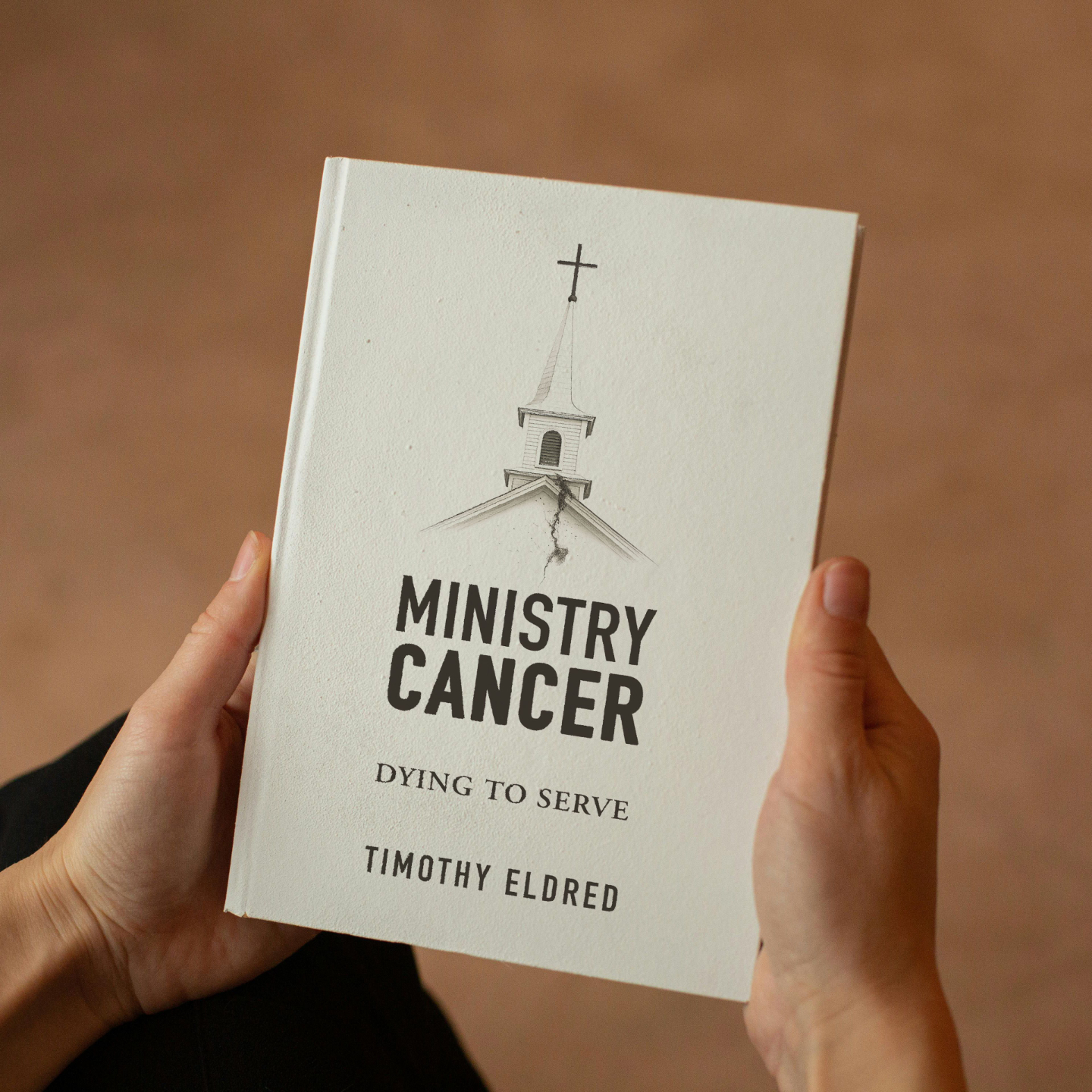Breaking Free from Burnout: Rethinking Our True Calling

Almost every day, I have conversations with pastors. We talk about the surface-level stuff first—ministry, church growth, family—but eventually, I ask the right questions, and they start admitting it: there’s a hole in them they can’t explain. They can’t always put their finger on it, but it’s there—eating away at their joy and robbing them of peace. And I’m convinced it’s because of the unrealistic expectations placed on them—and more dangerously—the ones they’ve put on themselves.
These expectations have become so ingrained in what it means to be a pastor that they seem biblical. But here’s the truth: they aren’t. They’re the root cause of unnecessary pain in pastoral life.
Just last week, someone asked me what it means to be an "authentic pastor." I gave a simple response:
-
There's no gap between your personal life and public persona. What you see is what you get: good, bad, ugly. Authentic pastors don't hide their junk—they show some skin.
-
You are an equipper—not a doer. That's the calling. We don't prepare services for saints, we prepare saints for service and help them find a mission and ministry of their own.
But the reality is, that many pastors aren’t living authentically. They’re weighed down by the belief that they must be more—holier, stronger, more capable—than anyone else in the room. And that they must have such rock-solid confidence in their calling as pastors, or they’re somehow failing. And it’s breaking them.
THE MISUNDERSTANDING OF CALLING
Here's where I think we’ve gone wrong: we’ve misunderstood what it means to be "called." Many pastors inadvertently live with an inflated sense of calling—convinced that their identity is wrapped up in the role of pastor. I’ve heard some say they could never leave ministry because it would be like turning their back on Jesus. Others talk about being so confident in their calling that it borders on arrogance. And then some are crushed under the weight of the calling because they’re convinced they can never live up to it.
But what if we’ve gotten the whole idea of "calling" wrong? The Bible doesn’t teach that our calling is to a role or a title. Our calling is to Christ. Romans 1:6 says we are called to belong to Jesus. Ephesians 4:1 urges us to "live a life worthy of the calling" we have received—not as pastors, but as people called to Christ. The role of pastor is a gifting, not a calling. Pastoral ministry is an assignment, a task, something we are entrusted with for a time, but it does not define who we are.
FINDING CONFIDENCE IN CHRIST—NOT THE ROLE
What pastors need isn’t confidence in their "calling" to be a pastor but confidence in their calling to Jesus. When your confidence is in Christ, your identity is rooted in Him. You no longer have to overcompensate for insecurities, inadequacies, or failures in your ministry because your worth doesn’t come from your title. Your identity is secure in Christ, and from that place, you can serve freely without striving for approval or performance.
Jesus said in John 15:5, "I am the vine; you are the branches. If you remain in me and I in you, you will bear much fruit; apart from me you can do nothing." Fruitfulness in ministry doesn’t come from overemphasizing your role or proving yourself worthy of the title. It comes from abiding in Christ. If we shifted our focus to our true calling to Christ and invested our time in growing in Him, the fruit of that relationship would naturally overflow into our ministry. We’d be freed from the performance trap where burnout and anxiety thrive. And instead, experience peace and balance in our lives.
THE DANGERS OF PERFORMANCE-BASED MINISTRY
Too many pastors are driven by the pressure to perform. They feel like they must hold everything together, be everything to everyone, and never let anyone down. But this is unsustainable. This is where the stress, anxiety, and burnout we see in pastors today come from—trying to live up to expectations that God never placed on them.
If we, as pastors, were more confident in our calling to Christ, we would see our role as one part of our lives, not the defining factor. We wouldn’t sacrifice our families or our well-being on the altar of ministry. We’d be able to set boundaries, prioritize our own health and well-being, and make time for the things that matter most—our relationship with Christ, our families, and ourselves.
EQUiPPING—NOT PERFORMING
When we understand that we’re all called equally to Christ, it changes how we see our ministry. Pastors are not higher or holier than anyone else in the body of Christ. We have different gifts and responsibilities, but every believer is called to the same mission—to follow Christ and make disciples.
Ephesians 4:11-12 says that Christ gave pastors to the church "to equip his people for works of service." Pastoral ministry is not about being the star of the show or the center of attention. It’s about equipping others to step into their gifts and callings. If we spent less time producing and more time empowering, equipping, and mobilizing the body of Christ, we’d see a church that isn’t dependent on one person but a community of believers working together as co-laborers in the kingdom.
THE WEIGHT WE'VE INHERITED
Now, let me acknowledge something important: we’ve inherited this perspective. For generations, pastors before us were trained with this same inflated sense of calling. It’s been passed down unintentionally, and so it’s no surprise that we continue to perpetuate it today. But the reality is this perspective is flat-out wrong. And if we are going to see the health, well-being, and effectiveness of pastors improve—not just today, but for the generations that follow—then we need to correct it.
While the "cancer" of this performance-based mindset might have been passed down unintentionally, the cure must be completely intentional. We can no longer afford to carry this burden. It’s time to embrace the truth of our calling to Christ and see the role of pastor for what it is—a gift and an assignment, not the foundation of our identity.
THE NEW ERA OF PASTORAL MINISTRY
This shift in perspective could lead to a new, healthier era of pastoral ministry. One where pastors are not crushed by the weight of an overinflated sense of calling but are confident in their identity in Christ. Where they lead from a place of overflow rather than exhaustion. Where they invest in equipping others, not performing for them.
My prayer is that we would all embrace this truth: our calling is to Christ. Pastoral ministry is a gift, an assignment we are entrusted with, but it does not define us. When we center our lives on Jesus, we can lead with true confidence and live balanced, healthy lives that reflect the joy, peace, and rest found in Him.
Please don't hear my thoughts as an indictment or criticism. I've been a pastor for 34 years and know the challenges you face. I also know the purity of your heart and motivation; however, to make course corrections, something must change—because you can't fix what you won't admit. May God continue to bless your passion for Christ and His Church. And may He also give us the boldness and courage to recognize that something might be broken. If you'd like to discuss this more, please email me at tim@theauthenticpastor.com. I'm ready to discuss or debate, but I'd prefer to work with you on solutions and a better way forward together. ◼︎
READY FOR SOMETHING MORE THAN YOU IMAGINED?
If you found this article helpful and want them in your inbox, sign up here.
We’ll send you each article plus updates from The Authentic Pastor that cut through the noise. No spam, just the good stuff—you can unsubscribe anytime.


